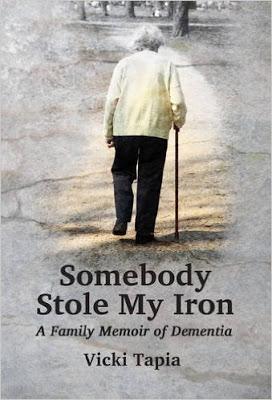
Published 17 January 2014.
Supporting one parent through a chronic illness is challenging enough. Author Vicki Tapia chronicles her experience supporting her father through Parkinson's Disease and her mother through Alzheimer's Disease.Tapia's parents are having more and more trouble managing the basics. As the only child living locally to her parents, Tapia helps her parents through a couple of moves--from their home to assisted living to a skilled nursing center.
Most of her memoir discusses her mother's problems with memory, mobility, language and self-care. Her father is a quiet man who rarely complains. Her mother is more outspoken, determined and demanding.
It's difficult to walk the line between respecting her mother's desire for independence and her mother's need for safety.
Tapia learns again and again that her mother's can present an illusion of capability that exceeds the reality.
For example, her mother complains about the horrible food in the skilled nursing facility. When Tapia visits during meal time, she observes her mother putting food into her beverage glasses. Persistent and vociferous complaints about the taste and consistency of the food were unfounded. Nevertheless, Tapia's mother perceives the problem to be valid and insists on being taken seriously.
Tapia's mother also has problems with dressing herself, taking her medication, and using the bathroom. This caregiver's memoir chronicles the various ways Tapia strives to intervene to help ease her mother's challenges. It's not easy working with her mother, her paid caregivers, and her physicians. It's hard to tell what variables can be adjusted and what is just a nonnegotiable reality of dementia.
For example, when do the side effects of medications outweigh the benefits? When should her mother start using a wheelchair? When should her mother start sleeping on a mattress on the floor? When should her mother stop receiving curative care and move to palliative care?
There are no clear-cut answers to these questions. They are all a matter of judgment and require family caregivers and professional caregivers to discuss these very emotional matters with each other.
Tapia is very kind to let the ready walk along side her as she and her parents--particularly her mother--walk a very difficult path. It's an engaging read.
Books about Dementia
Film about Dementia

